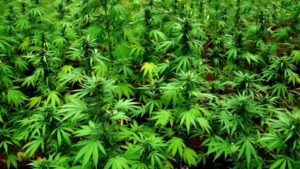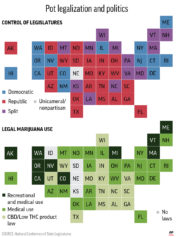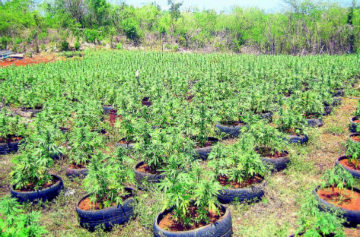
Criminal intent apart, the long sentences reflect Cuba’s concern about the moral, public health, and societal impact that the use or sale of narcotics could have on Cuban society; an approach that has resulted in zero tolerance towards even the possession of small quantities of marijuana for personal use, and severe sentences for citizens and visitors alike.
It is a policy quite unlike that of Jamaica which in recognition of its own reality has decriminalised possession, allowing a person to carry up to two ounces of ganja and to grow up to five plants where permitted. It has also established a Cannabis Licensing Authority to regulate a medicinal marijuana industry which it sees as offering significant economic gains, employment, and a new source of government revenue.
What these contrasting but equally valid positions illustrate is the complexity of trying to harmonise an approach to marijuana, not just in the Caribbean region, but across the whole of the Americas.
While parts of the United States, Canada, Uruguay, Colombia and Jamaica have either established or are intending creating legislation legalising and controlling the limited use of marijuana, many other nations like Cuba remain strongly opposed to the legislative and moral downgrading implied.
This divide was clearly demonstrated earlier this year when in April the UN General Assembly Special Session on Drugs ended without any significant change to the existing conventions, despite strong representations for reform from Latin American and CARICOM countries seeking a less prohibitionist global regime.
The meeting revealed deep disagreements over international drug policy between what the UN describes as countries that favoured moving to a humane approach by dealing with drug use primarily as a public health issue, versus those nations favouring a strict law and order response to all narcotics issues.
At the UN session, CARICOM nations proposed that the UN review the classification of ganja. Jamaica’s Minister of Foreign Affairs, Kamina Johnson-Smith, argued against a one size fits all approach, observing that all countries should be allowed the flexibility to craft appropriate laws and policies while continuing to undertake their obligations under the UN Drug Control Conventions. All nations, she suggested, should be able to take into account important national elements, such as different cultural perspectives and practices, noting that in Jamaica’s case marijuana’s use as a folk medicine or as a religious sacrament were not associated with illicit, large-scale cultivation for trade.
“We contend that the classification of cannabis under the Single Convention is an anomaly and that the medical value of a substance must be determined by science and evidence-based analysis, above other considerations,” Ms Johnson-Smith said, reportedly to some applause.
The meeting ended however without any such change being agreed, despite the fact that in the Americas the marijuana industry is rapidly and observably becoming a mainstream activity leaving the Caribbean behind.
In particular the sale and taxation of marijuana has become big business in many parts of the United States as well as a significant source revenue for the states involved.
Its cultivation is now legal in Colorado, Oregon and Alaska, as it its sale with a state issued license. Possession has been decriminalised in 18 US states; and it is legal medicinally in 25. In 2015 in Colorado alone, licensed and regulated stores sold US$996m worth of medical and recreational marijuana earning in the process tax revenues for social spending of more than US$135m.
As Jamaica’s Finance Minister Audley Shaw recently pointed out, the legal marijuana market in the US is predicted to rise from US$6.7 billion this year to US$21.8 billion by 2020 and that some countries like the Netherlands have begun to export medical marijuana to countries like Canada, Italy, Germany and the Czech Republic.
Read more here


